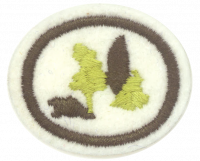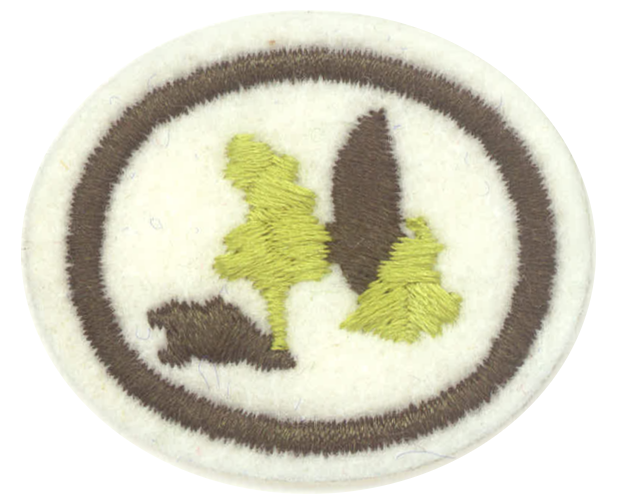Difference between revisions of "AY Honors/Shrubs/Answer Key/es"
From Pathfinder Wiki
(Created page with "</noinclude> <!-- 1. Tener en cuenta tres características de los arbustos que los distinguen de los árboles y hierbas. -->") |
(Updating to match new version of source page) |
||
| (13 intermediate revisions by 2 users not shown) | |||
| Line 1: | Line 1: | ||
| − | + | {{HonorSubpage}} | |
| − | + | ||
| − | {{ | + | <section begin="Body" /> |
| − | |||
| − | |||
| − | |||
| − | |||
| − | |||
| − | |||
| − | |||
| − | |||
| − | |||
| − | |||
{{ansreq|page={{#titleparts:{{PAGENAME}}|2|1}}|num=1}} | {{ansreq|page={{#titleparts:{{PAGENAME}}|2|1}}|num=1}} | ||
<noinclude></noinclude> | <noinclude></noinclude> | ||
| Line 25: | Line 15: | ||
{{ansreq|page={{#titleparts:{{PAGENAME}}|2|1}}|num=2}} | {{ansreq|page={{#titleparts:{{PAGENAME}}|2|1}}|num=2}} | ||
<noinclude></noinclude> | <noinclude></noinclude> | ||
| − | <!-- 2. | + | <!-- 2. Mencionar tres importantes arbustos alimenticios silvestres o cultivados de su localidad. --> |
{{clear}} | {{clear}} | ||
| Line 37: | Line 27: | ||
{{ansreq|page={{#titleparts:{{PAGENAME}}|2|1}}|num=3}} | {{ansreq|page={{#titleparts:{{PAGENAME}}|2|1}}|num=3}} | ||
<noinclude></noinclude> | <noinclude></noinclude> | ||
| − | <!-- 3. | + | <!-- 3. Nombrar dos arbustos cultivados y dos arbustos silvestres de su localidad que producen flores vistosas. --> |
| − | |||
| − | |||
| − | |||
| − | |||
| − | |||
| − | |||
| − | |||
| − | |||
| − | |||
| − | |||
| − | |||
| − | |||
| − | |||
| − | |||
| − | |||
| − | |||
| − | |||
<noinclude></noinclude> | <noinclude></noinclude> | ||
| Line 60: | Line 33: | ||
{{ansreq|page={{#titleparts:{{PAGENAME}}|2|1}}|num=4}} | {{ansreq|page={{#titleparts:{{PAGENAME}}|2|1}}|num=4}} | ||
<noinclude></noinclude> | <noinclude></noinclude> | ||
| − | <!-- 4. | + | <!-- 4. ¿La mayoría de los arbustos florecen, en primavera, verano u otoño? Nombrar un arbusto cuyas flores se abren antes de que las hojas aparezcan. --> |
{{clear}} | {{clear}} | ||
| Line 74: | Line 47: | ||
{{ansreq|page={{#titleparts:{{PAGENAME}}|2|1}}|num=5}} | {{ansreq|page={{#titleparts:{{PAGENAME}}|2|1}}|num=5}} | ||
<noinclude></noinclude> | <noinclude></noinclude> | ||
| − | <!-- 5. | + | <!-- 5. ¿Qué arbusto parasitario de uso frecuente para la decoración de interiores crece en las ramas altas de diferentes clases de árboles? --> |
| − | |||
| − | |||
| − | |||
| − | |||
| − | |||
| − | |||
{{clear}}</noinclude> | {{clear}}</noinclude> | ||
| Line 86: | Line 53: | ||
{{ansreq|page={{#titleparts:{{PAGENAME}}|2|1}}|num=6}} | {{ansreq|page={{#titleparts:{{PAGENAME}}|2|1}}|num=6}} | ||
<noinclude></noinclude> | <noinclude></noinclude> | ||
| − | <!-- 6. | + | <!-- 6. Dar un ejemplo de un arbusto cuyas hojas en otoño se tornan de tonos verdes a brillantes amarillos, naranja o rojo. --> |
{{clear}} | {{clear}} | ||
| Line 100: | Line 67: | ||
{{ansreq|page={{#titleparts:{{PAGENAME}}|2|1}}|num=7}} | {{ansreq|page={{#titleparts:{{PAGENAME}}|2|1}}|num=7}} | ||
<noinclude></noinclude> | <noinclude></noinclude> | ||
| − | <!-- 7. | + | <!-- 7. Observar algunos arbustos que se encuentran en floración y hacer una lista de tantas clases de insectos como pueda (al menos tres) que hayan venido a las flores por polen o néctar. --> |
| − | |||
{{clear}} | {{clear}} | ||
| Line 115: | Line 81: | ||
{{ansreq|page={{#titleparts:{{PAGENAME}}|2|1}}|num=8}} | {{ansreq|page={{#titleparts:{{PAGENAME}}|2|1}}|num=8}} | ||
<noinclude></noinclude> | <noinclude></noinclude> | ||
| − | <!-- 8. | + | <!-- 8. ¿De qué arbustos prefieren las aves comer los frutos y las semillas? Mencionar un arbusto cuyas flores atrae a las aves. --> |
| − | |||
{{clear}} | {{clear}} | ||
| Line 124: | Line 89: | ||
{{ansreq|page={{#titleparts:{{PAGENAME}}|2|1}}|num=9}} | {{ansreq|page={{#titleparts:{{PAGENAME}}|2|1}}|num=9}} | ||
<noinclude></noinclude> | <noinclude></noinclude> | ||
| − | <!-- 9. | + | <!-- 9. ¿En qué arbustos prefieren los pájaros construir sus nidos? --> |
| − | |||
{{clear}} | {{clear}} | ||
| Line 133: | Line 97: | ||
{{ansreq|page={{#titleparts:{{PAGENAME}}|2|1}}|num=10}} | {{ansreq|page={{#titleparts:{{PAGENAME}}|2|1}}|num=10}} | ||
<noinclude></noinclude> | <noinclude></noinclude> | ||
| − | <!-- | + | <!-- Recopilar, preservar y determinar correctamente las flores, hojas, semillas, vainas de semillas o ramitas con los brotes de 10 arbustos silvestres. --> |
| − | |||
{{clear}} | {{clear}} | ||
| Line 146: | Line 109: | ||
<noinclude></noinclude> | <noinclude></noinclude> | ||
==Referencias== | ==Referencias== | ||
| − | |||
<noinclude></noinclude> | <noinclude></noinclude> | ||
| − | + | ||
| + | [[Category:Adventist Youth Honors Answer Book/Do at home{{GetLangSuffix}}]] | ||
| + | {{CloseHonorPage}} | ||
Latest revision as of 17:24, 3 January 2023
1
Tener en cuenta tres características de los arbustos que los distinguen de los árboles y hierbas.
2
Mencionar tres importantes arbustos alimenticios silvestres o cultivados de su localidad.
3
Nombrar dos arbustos cultivados y dos arbustos silvestres de su localidad que producen flores vistosas.
4
¿La mayoría de los arbustos florecen, en primavera, verano u otoño? Nombrar un arbusto cuyas flores se abren antes de que las hojas aparezcan.
5
¿Qué arbusto parasitario de uso frecuente para la decoración de interiores crece en las ramas altas de diferentes clases de árboles?
6
Dar un ejemplo de un arbusto cuyas hojas en otoño se tornan de tonos verdes a brillantes amarillos, naranja o rojo.
7
Observar algunos arbustos que se encuentran en floración y hacer una lista de tantas clases de insectos como pueda (al menos tres) que hayan venido a las flores por polen o néctar.
8
¿De qué arbustos prefieren las aves comer los frutos y las semillas? Mencionar un arbusto cuyas flores atrae a las aves.
9
¿En qué arbustos prefieren los pájaros construir sus nidos?
10
Recopilar, preservar y determinar correctamente las flores, hojas, semillas, vainas de semillas o ramitas con los brotes de 10 arbustos silvestres.


